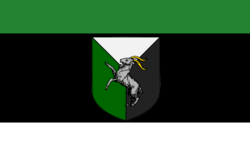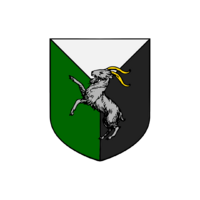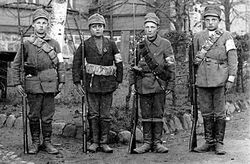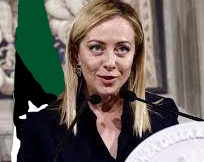Swinas: Difference between revisions
mNo edit summary |
No edit summary |
||
| Line 14: | Line 14: | ||
|population_census = 42,299,153 | |population_census = 42,299,153 | ||
|population_census_year = 2021 | |population_census_year = 2021 | ||
|ethnic_groups = {{bulleted list |69.8% | |ethnic_groups = {{bulleted list |69.8% Swinnic |30.2% other}} | ||
|demonym = | |demonym = Swinnic | ||
|currency = | |currency = Swinnic Ram, Swinnic Buckling | ||
|currency_code = SR, SB | |currency_code = SR, SB | ||
|languages_type = National Language | |languages_type = National Language | ||
| Line 34: | Line 34: | ||
== History == | == History == | ||
The Kingdom of Swinas would not be officially established under the Swinas name until the year 1500 A.D. However, the Kingdom's Predecessor, the Duchy of Cresta, would be founded in about 1000 A.D. The nation was a key player in early | The Kingdom of Swinas would not be officially established under the Swinas name until the year 1500 A.D. However, the Kingdom's Predecessor, the Duchy of Cresta, would be founded in about 1000 A.D. The nation was a key player in early Swinnic History and would be the duchy to officially unite Swinas. Over the span of 200 years, duchies in Swinas would slowly conquer they're neighbors until there were 3, now kingdoms in Swinas. | ||
The Duchy of Cresta in particular had evolved into the Kingdom of East Swinas, encompassing a majority of the area's temperate land, as well as some desert land. By the year 1400 A.D. the Kingdom of East Swinas would declare war on the Kingdom of Central Swinas. The war lasted 3 years, and in the end, East Swinas came out on top. The Kingdom of West Swinas exploited the situation in the Kingdom of Central Swinas by conquering some of the Kingdom's Western Territories. At this point, the populous of both Swinas' wanted to unite into a singular Swinas. However, the other side wanted to be the one to accomplish the goal, and not the other. | The Duchy of Cresta in particular had evolved into the Kingdom of East Swinas, encompassing a majority of the area's temperate land, as well as some desert land. By the year 1400 A.D. the Kingdom of East Swinas would declare war on the Kingdom of Central Swinas. The war lasted 3 years, and in the end, East Swinas came out on top. The Kingdom of West Swinas exploited the situation in the Kingdom of Central Swinas by conquering some of the Kingdom's Western Territories. At this point, the populous of both Swinas' wanted to unite into a singular Swinas. However, the other side wanted to be the one to accomplish the goal, and not the other. | ||
A period of peace would surround the area and during that time, the Kingdom of East Swinas would conquer what is now known today as Nordinsel. This island would be useful in the coming | A period of peace would surround the area and during that time, the Kingdom of East Swinas would conquer what is now known today as Nordinsel. This island would be useful in the coming Swinnic Unification War, which would happen just 60 years after the integration of the island into East Swinas. The Kingdom of West Swinas would also make moves to march westward towards the Parthenean Coast, 80 years before the Swinnic Unification War. By around 1500 A.D, both Kingdom's were prepared to go to war with each other and united Swinas. | ||
On December 26th, 1494, The Kingdom of West Swinas declared war on the Kingdom of East Swinas. Though both kingdom's had similar army sizes, the island of Nordinsel would be used as a launching point for a Eastern Naval Landing on West Swinas. The Naval Invasion surprised West Swinas, and they were forced to take more defensible positions in the desert. The Kingdom of East Swinas had Arid trained men, and sent them to attack the key city of Allenschied. The battle was brutal, and the East | On December 26th, 1494, The Kingdom of West Swinas declared war on the Kingdom of East Swinas. Though both kingdom's had similar army sizes, the island of Nordinsel would be used as a launching point for a Eastern Naval Landing on West Swinas. The Naval Invasion surprised West Swinas, and they were forced to take more defensible positions in the desert. The Kingdom of East Swinas had Arid trained men, and sent them to attack the key city of Allenschied. The battle was brutal, and the East Swinns were almost kicked out of the city, but the Kingdom of East Swinas won. At this point, the Kingdom of West Swinas lost all of they're moral, and surrendered, uniting Swinas. | ||
Following the achievement of unifying Swinas, the nation would remain an Absolute Monarchy until 1788, when many within Swinas pushed for the creation of a constitution that limited the power of the king. After refusal of King Jonas to comply and create a constitution, his son, who was in favor of a constitution, couped his father, and the Leistungsbegrenzung came into effect. Over the course of the next 50 years, more and more democratic reforms would restrict the power of the king, until the king became a figurehead, though never being completely removed. | Following the achievement of unifying Swinas, the nation would remain an Absolute Monarchy until 1788, when many within Swinas pushed for the creation of a constitution that limited the power of the king. After refusal of King Jonas to comply and create a constitution, his son, who was in favor of a constitution, couped his father, and the Leistungsbegrenzung came into effect. Over the course of the next 50 years, more and more democratic reforms would restrict the power of the king, until the king became a figurehead, though never being completely removed. | ||
The king never being completely removed was a pressing issue for many Left-Wing Party's in the early 1900's. Party's such as the | The king never being completely removed was a pressing issue for many Left-Wing Party's in the early 1900's. Party's such as the Swinnic Communist Party would advocate for the complete removal of the king, claiming that it was a shadow of the authoritarian rule Swinas was once under. This was not the only issue the Swinnic Communists had. In fact, this was probably one of their less important issues. The main complaint from the Swinnic Communist Party was that quote "greedy businessmen" controlled the country. | ||
Eventually, rising tensions led to many Communist Militias rising up in 1921. 3 days later, the militias would unite under the People's Republic of Swinas name. The Civil War would go on to be the bloodiest conflict in | Eventually, rising tensions led to many Communist Militias rising up in 1921. 3 days later, the militias would unite under the People's Republic of Swinas name. The Civil War would go on to be the bloodiest conflict in Swinnic History. Some elements of the Civil War still impact the Kingdom of Swinas to this day. Luckily, the Kingdom of Swinas would defeat the communists, as told on the [[Swish Civil War]] page. | ||
Following the victory of the Kingdom of Swinas, efforts were made to neutralize the remaining leftist threat in Western Swinas. The Kingdom also made small reforms to prevent another socialist uprising in the future. Reserve Forces of the | Following the victory of the Kingdom of Swinas, efforts were made to neutralize the remaining leftist threat in Western Swinas. The Kingdom also made small reforms to prevent another socialist uprising in the future. Reserve Forces of the Swinnic Civil War were called into Western Swinas to help neutralize the socialists. | ||
[[File:SwishCivilWarImage.jpg|thumb|250px|right|Image of Constitutionalist Reserves]] | [[File:SwishCivilWarImage.jpg|thumb|250px|right|Image of Constitutionalist Reserves]] | ||
== Military == | == Military == | ||
The Swinnic Military has been an integral part of the nation since the Duchy of Cresta's inception. Today, the Swinnic Military has 3 branches; the Swinnic Ground Forces, the Swinnic Air Force, the Swinnic Navy. Each branch usually has sub-divisions within it, such as the Swinnic Air Force, which has a Bomber, Close Air Support, Para-Trooper, and Fighter sub-division. The Swinnic Ground Forces include an Artillery, Tank, Anti-Air, and Infantry sub-division. The Swinnic Navy includes the Coast Guard, Naval Air, and Marine sub-division. The main Swinnic Navy is what you would expect from a navy. The Swinnic Military also contains a special forces division, the Spezialeinheiten. | |||
== Politics == | == Politics == | ||
Revision as of 13:17, 1 October 2023
Kingdom of Swinas Königreich Swinas | |
|---|---|
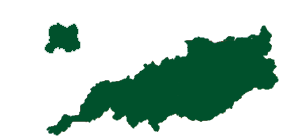 | |
| Capital | Cape Cresta City |
| National Language | German, Common |
| Ethnic groups |
|
| Demonym(s) | Swinnic |
| Government | Constitutional Monarchy |
• Monarch | King Friedrich III |
• Prime Minister | Amelia Norris |
| Area | |
• Total | 985,095 km2 (380,347 sq mi) |
| Population | |
• 2021 census | 42,299,153 |
| GDP (nominal) | estimate |
• Total | 448,984,350,000 |
| Currency | Swinnic Ram, Swinnic Buckling (SR, SB) |
| Driving side | right |
| Calling code | +59 |
Swinas, or, the Kingdom of Swinas is a constitutional monarchy composed of 7 autonomous districts. The capital of the Kingdom of Swinas is Cape Cresta City, where the nation was also founded under the "Duchy of Cresta" name. The nation is located in Hiraethia and is bordered by Vultesia, Wellsenfaille, and the Eldmoran Empire. The Kingdom of Swinas is a member of the Vedoti Pact and shares good relations with the Hylian Republic. The population of the Kingdom of Swinas is 42,299,153 according to a census conducted 2 years ago.
Etymology
Though the exact Etymology of Swinas is unknown, many speculate it to be related to the German word "Schwine", which means Pig.
History
The Kingdom of Swinas would not be officially established under the Swinas name until the year 1500 A.D. However, the Kingdom's Predecessor, the Duchy of Cresta, would be founded in about 1000 A.D. The nation was a key player in early Swinnic History and would be the duchy to officially unite Swinas. Over the span of 200 years, duchies in Swinas would slowly conquer they're neighbors until there were 3, now kingdoms in Swinas.
The Duchy of Cresta in particular had evolved into the Kingdom of East Swinas, encompassing a majority of the area's temperate land, as well as some desert land. By the year 1400 A.D. the Kingdom of East Swinas would declare war on the Kingdom of Central Swinas. The war lasted 3 years, and in the end, East Swinas came out on top. The Kingdom of West Swinas exploited the situation in the Kingdom of Central Swinas by conquering some of the Kingdom's Western Territories. At this point, the populous of both Swinas' wanted to unite into a singular Swinas. However, the other side wanted to be the one to accomplish the goal, and not the other.
A period of peace would surround the area and during that time, the Kingdom of East Swinas would conquer what is now known today as Nordinsel. This island would be useful in the coming Swinnic Unification War, which would happen just 60 years after the integration of the island into East Swinas. The Kingdom of West Swinas would also make moves to march westward towards the Parthenean Coast, 80 years before the Swinnic Unification War. By around 1500 A.D, both Kingdom's were prepared to go to war with each other and united Swinas.
On December 26th, 1494, The Kingdom of West Swinas declared war on the Kingdom of East Swinas. Though both kingdom's had similar army sizes, the island of Nordinsel would be used as a launching point for a Eastern Naval Landing on West Swinas. The Naval Invasion surprised West Swinas, and they were forced to take more defensible positions in the desert. The Kingdom of East Swinas had Arid trained men, and sent them to attack the key city of Allenschied. The battle was brutal, and the East Swinns were almost kicked out of the city, but the Kingdom of East Swinas won. At this point, the Kingdom of West Swinas lost all of they're moral, and surrendered, uniting Swinas.
Following the achievement of unifying Swinas, the nation would remain an Absolute Monarchy until 1788, when many within Swinas pushed for the creation of a constitution that limited the power of the king. After refusal of King Jonas to comply and create a constitution, his son, who was in favor of a constitution, couped his father, and the Leistungsbegrenzung came into effect. Over the course of the next 50 years, more and more democratic reforms would restrict the power of the king, until the king became a figurehead, though never being completely removed.
The king never being completely removed was a pressing issue for many Left-Wing Party's in the early 1900's. Party's such as the Swinnic Communist Party would advocate for the complete removal of the king, claiming that it was a shadow of the authoritarian rule Swinas was once under. This was not the only issue the Swinnic Communists had. In fact, this was probably one of their less important issues. The main complaint from the Swinnic Communist Party was that quote "greedy businessmen" controlled the country.
Eventually, rising tensions led to many Communist Militias rising up in 1921. 3 days later, the militias would unite under the People's Republic of Swinas name. The Civil War would go on to be the bloodiest conflict in Swinnic History. Some elements of the Civil War still impact the Kingdom of Swinas to this day. Luckily, the Kingdom of Swinas would defeat the communists, as told on the Swish Civil War page.
Following the victory of the Kingdom of Swinas, efforts were made to neutralize the remaining leftist threat in Western Swinas. The Kingdom also made small reforms to prevent another socialist uprising in the future. Reserve Forces of the Swinnic Civil War were called into Western Swinas to help neutralize the socialists.
Military
The Swinnic Military has been an integral part of the nation since the Duchy of Cresta's inception. Today, the Swinnic Military has 3 branches; the Swinnic Ground Forces, the Swinnic Air Force, the Swinnic Navy. Each branch usually has sub-divisions within it, such as the Swinnic Air Force, which has a Bomber, Close Air Support, Para-Trooper, and Fighter sub-division. The Swinnic Ground Forces include an Artillery, Tank, Anti-Air, and Infantry sub-division. The Swinnic Navy includes the Coast Guard, Naval Air, and Marine sub-division. The main Swinnic Navy is what you would expect from a navy. The Swinnic Military also contains a special forces division, the Spezialeinheiten.
Politics
Amelia Norris
During the elections of 2021, Amelia Norris, a Liberal Politician, ran for Prime Minister of the Kingdom of Swinas. She campaigned on a platform of unity and modernization, emphasizing her commitment to improving the lives of all citizens and fostering a sense of national pride. Her campaign was fierce and competitive, as she faced several strong candidates from different political parties. Despite this, Amelia Norris emerged victorious, winning a majority of the votes in the election. With her victory, she became the 3rd woman to become Prime Minister of Swinas. Her win was seen as a significant milestone in the country's political history, as it demonstrated the increasing participation and influence of women in the political sphere. Her presidency was marked by a number of significant reforms and achievements in areas such as education, healthcare, and infrastructure development.
Foreign Relations
The Kingdom of Swinas has a history of good relations with other countries, particularly with the democracies of Hylia and Trident Union, both are non-bordering countries. These countries have strong diplomatic ties, with regular high-level visits and meetings between government officials. The countries also have a strong economic partnership, with a significant amount of trade and investment taking place between them.
Swinas and Hylia have a long-standing friendship, founded on shared values such as democracy, human rights and free trade. They have cooperated on various international issues, such as peacekeeping operations and humanitarian aid, and have a strong relationship in cultural exchange.
Trident Union, being a faraway country, also has a strong relationship with the country. The two countries have a mutual defense agreement and have cooperated on various issues such as counterterrorism, drug trafficking and illegal migration. Swinas and Trident Union also have a strong economic partnership, with many Swish companies investing in Trident Union and vice versa.
Swinas also maintains cordial relations with other countries in the region and is active in regional organizations such as the Anterian Peace League. Overall, the Kingdom of Swinas is committed to promoting peace and stability in the international community and has a history of maintaining good relations with other countries. The country's foreign policy is based on the principles of non-interference, mutual respect, and cooperation with other nations.
Economy
For a brief period of time after independence in 1915, Swinas kept the Riamese currency. However, with the help from the Riamese, the country soon established its own currency, the Swish Ram, named after an old goat religion that was practiced by the indigenous people of Swinas. The Swish Ram quickly became the main currency used throughout the country, and it was widely accepted by merchants and businesses. In addition to the Swish Ram, the country also established the Swish Buckling, which was used for the paying of non-dollar increments. This system helped to ensure that the country's economy was stable and that the currency was easily accessible to all citizens. Today, the Swish Ram and the Swish Buckling are still in use and continue to play an important role in the country's economy.
Geography
Swinas has taken various measures to preserve and protect its natural resources. One of the key steps taken by the government is the establishment of national parks and nature reserves to safeguard the country's flora and fauna. Swinas has a total of 28 protected areas covering a vast area of land, including forests, wetlands, and marine ecosystems.
Furthermore, Swinas has implemented strict regulations on logging and mining to prevent deforestation and environmental degradation. The country has also invested in sustainable forestry practices, such as selective logging and reforestation programs, to ensure the long-term health of its forests. The government has also encouraged the use of alternative energy sources, such as solar and wind power, to reduce the reliance on non-renewable energy sources.
In addition, Swinas has implemented policies to reduce pollution and improve air and water quality. The government has implemented regulations on vehicle emissions, and industrial facilities are required to meet stringent environmental standards. The country has also invested in wastewater treatment facilities to ensure that wastewater is treated before being released back into the environment.
Overall, Swinas is committed to preserving and protecting its natural resources for future generations. The country's efforts to promote sustainable development have not only helped to preserve its unique ecosystems but have also created new opportunities for eco-tourism and sustainable economic growth.
Swinas is blessed with two major rivers, the Dandora and the Kishwara, which play a vital role in the country's ecosystem and economy.
The Dandora River is the longer of the two, stretching over 600 kilometers from its source in the highlands of the north to its outlet in the Talsar Sea. Along its course, the Dandora provides a lifeline for both human and animal communities, with countless towns and villages settled along its banks. The river also supports a wide range of agricultural activities, with farmers utilizing its fertile floodplains for rice, sugarcane, and other crops.
The Kishwara River, on the other hand, is relatively shorter, but no less important. It begins in the hills of the west and flows through dense forested areas and rocky terrain, creating stunning waterfalls and providing habitats for a variety of wildlife. The river is also a critical source of water for many communities in the region, supplying clean water for drinking, cooking, and washing.
Despite their importance, both rivers are facing numerous threats, including pollution from industrial activities, agricultural runoff, and urbanization. To combat these threats, the Swinas government has implemented several measures to protect the rivers and their surrounding ecosystems. These measures include the creation of protected areas and conservation zones, the establishment of monitoring programs, and the enactment of laws and regulations to control pollution and other harmful activities.
The government has also encouraged community-based initiatives to protect and conserve the rivers. For example, local organizations have been established to clean up the rivers and their surroundings, plant trees to prevent soil erosion and promote biodiversity, and educate the public about the importance of protecting these precious resources.
Overall, the Dandora and Kishwara Rivers are essential components of Swinas' natural heritage, and their protection and conservation are vital for the country's sustainable development.
